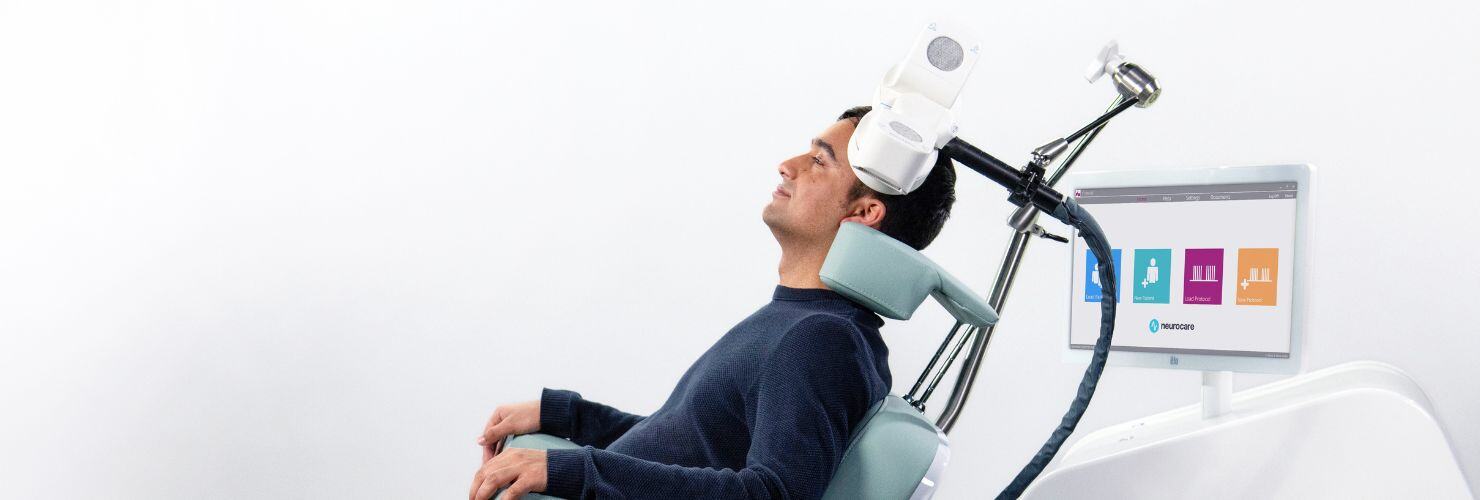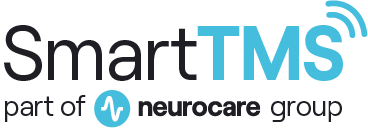Treating anxiety with TMS - the evidence
Discover how Transcranial Magnetic Stimulation (TMS) can assist with Generalised Anxiety Disorder (GAD).

What is the recommended treatment for anxiety disorders?
NHS Choices suggests starting with psychological therapy to manage anxiety. This approach helps you learn to handle symptoms effectively when they arise.
GPs often offer various therapy options. Some may recommend books or computer programs as a starting point, while others might suggest group courses. Cognitive Behavioural Therapy (CBT) is frequently advised for Generalized Anxiety Disorder (GAD) and helps teach effective coping strategies.
If psychological therapy hasn't been effective for you, there are various medications available, each with its own advantages and potential side effects. Benzodiazepines, such as Diazepam, are highly effective for anxiety but can quickly lead to addiction. It's important not to use benzodiazepines for more than four weeks, as their effectiveness decreases with prolonged use.
Other medications used to treat generalised anxiety disorder include:
- Selective serotonin reuptake inhibitors (SSRI) – like Sertraline, Escitalopram or Paroxetine. If one SSRI doesn’t work for you or causes unwanted side effects, your GP can recommend a different dose or prescribe a different SSRI;
- Serotonin and noradrenaline reuptake inhibitors (SNRI) – like duloxetine or venlafaxine;
- Pregabalin – this is an anticonvulsant drug, which can benefit anxiety.
About half of the patients may not respond to the standard treatments. If the medications you are prescribed don't work, your GP might refer you to a psychological team. They can explore different combinations of drugs and therapy to find what works best for you.
What is the evidence for using TMS to treat anxiety?
Extensive research has explored using transcranial magnetic stimulation to treat patients with generalised anxiety disorder (GAD).
In a 2016 study by Dieffenbachia, TMS was found to significantly outperform the placebo, with effects lasting beyond the treatment period. The study revealed that 1 in 3 participants fully recovered from anxiety, and 75% experienced notable improvements.
At Smart TMS, treating generalised anxiety disorder is one of our top services. In a recent review of 70 patients, we found that about 62% achieved remission, meaning they were no longer clinically anxious. Additionally, 75% of all patients experienced at least a 30% reduction in their anxiety symptoms.
What’s the verdict – can TMS treat generalised anxiety disorder?
Smart TMS was the first clinic in the UK to offer anxiety treatment, and we're proud of our success. Our treatments have helped 75% of our patients with anxiety enjoy a better quality of life.
Research and our experience show that if TMS is effective for your GAD, you'll notice improvements within the first 15 sessions. If your symptoms improve, you can continue with the full 30 sessions to achieve the best results.
While many of our patients see improvement, some may not respond to treatment. Despite ongoing research, experts still don't fully understand why this happens. Ultimately, the choice is yours, and our team of patient advisors and practitioners is here to provide you with all the information and evidence you need to make an informed decision.
To find out more, contact our team of patient advisors. They will explain the treatment, discuss potential outcomes, and answer any questions you may have.
Contact our team about TMS treatment
Not sure if TMS is right for you?






